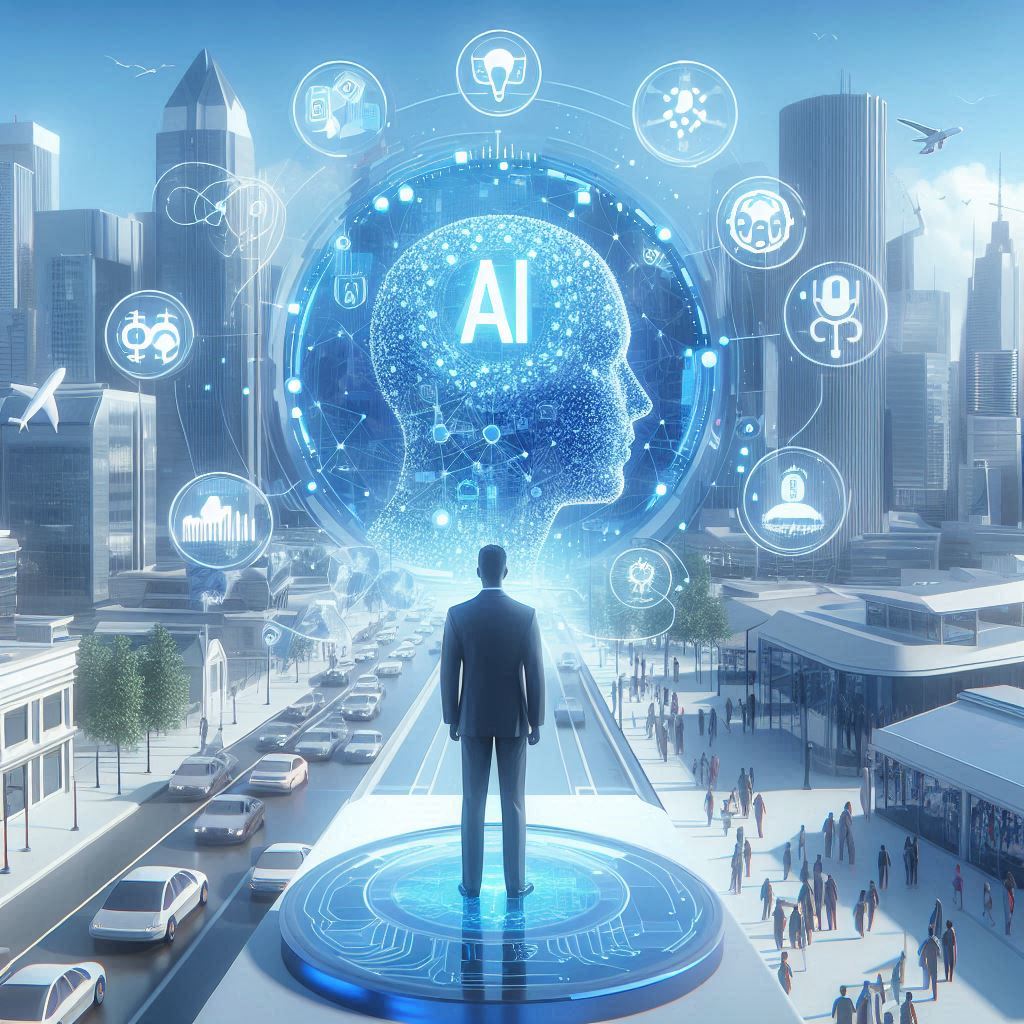AI’s Revolution Beyond the Hype, Here’s How It’s Working Now

Key Points:
- AI is already improving healthcare, optimizing businesses, transforming transportation, and personalizing education in significant ways.
- While AI offers vast potential, it’s crucial to address its ethical implications, including job displacement and algorithmic bias.
- Shaping a positive future with AI requires collaboration, responsible development, and a focus on human well-being.
Artificial intelligence (AI) is often portrayed as a futuristic concept, something out of science fiction movies. While it’s true that AI holds immense potential for the future, it’s crucial to recognize that AI is already having a profound impact on our world today. Beyond the hype and speculation, practical applications of AI are quietly revolutionizing industries, improving efficiency, and even saving lives.
AI in Healthcare: A Beacon of Hope
One of the most promising frontiers for AI is healthcare. AI algorithms, trained on vast datasets of medical images, are now capable of analyzing X-rays, MRIs, and CT scans with remarkable accuracy and speed. They often surpass human radiologists in detecting early signs of diseases like cancer, heart conditions, and neurological disorders. This accelerated and enhanced diagnostic capability enables medical professionals to intervene earlier, potentially leading to more effective treatment plans and improved patient outcomes.
Beyond diagnostics, AI is personalizing treatment plans. By analyzing a patient’s medical history, genetic information, and lifestyle factors, AI algorithms can assist doctors in tailoring treatment regimens to individual needs, maximizing effectiveness while minimizing potential side effects. Furthermore, AI is accelerating the drug discovery process. By analyzing complex biological data and simulating the effects of potential drug candidates, AI is identifying promising leads for new medications and therapies at an unprecedented pace, offering hope for treating diseases that have long plagued humanity.
AI in Business: Boosting Efficiency, Personalizing Experiences, and Automating Tasks
Businesses across various industries are harnessing the power of AI to streamline operations, optimize decision-making, and enhance customer experiences. AI-powered chatbots have become commonplace, providing instant customer support 24/7. These chatbots, trained on vast databases of customer inquiries, can answer questions, resolve issues, and even anticipate customer needs, freeing up human agents to focus on more complex tasks.
Beyond customer service, AI is revolutionizing marketing and sales. By analyzing customer data, AI algorithms can identify patterns and predict consumer behavior with remarkable accuracy. This enables businesses to personalize marketing campaigns, target specific customer segments with tailored offers, and optimize pricing strategies for maximum impact. In manufacturing and logistics, AI is optimizing supply chains, predicting maintenance needs, and even automating warehouse operations, leading to increased efficiency and reduced costs.
AI in Transportation: Navigating Towards Safer and More Efficient Transportation Systems
The transportation industry is undergoing a profound transformation driven by the integration of AI. Self-driving cars, once a futuristic fantasy, are becoming increasingly sophisticated, with companies like Tesla, Waymo, and Cruise making significant strides in autonomous vehicle technology. AI algorithms, powered by sensors, cameras, and machine learning, allow these vehicles to perceive their surroundings, make decisions, and navigate complex environments with increasing autonomy, promising a future of safer and more efficient transportation.
Beyond self-driving cars, AI is being implemented to optimize traffic flow in smart cities. By analyzing real-time traffic data, AI algorithms can adjust traffic light timings, suggest alternative routes, and even predict potential accidents, contributing to reduced congestion, shorter commute times, and improved road safety.
AI in Education: Unleashing the Potential of Personalized Learning Experiences and Expanding Access to Education
AI is poised to transform the education landscape by creating more personalized and engaging learning experiences for students of all ages. AI-powered tutoring systems can adapt to individual learning styles, provide customized feedback, and track progress, offering students tailored support and helping them reach their full potential.
AI is also being used to develop intelligent textbooks and learning platforms that adjust their content based on a student’s comprehension level, providing a more engaging and personalized learning journey. Furthermore, AI is expanding access to education by enabling the creation of online learning platforms and resources that can reach underserved communities and remote areas, breaking down geographical barriers to quality education.
The Human Impact of AI: Navigating the Benefits and Challenges
While AI’s transformative potential is undeniable, it’s crucial to address the human impact of this technological revolution. One concern is the potential for job displacement as AI automation takes over tasks previously performed by humans. While some jobs will inevitably be automated, history has shown that technological advancements also create new job opportunities. It’s essential to focus on reskilling and upskilling the workforce to prepare for the jobs of the future, where humans and AI collaborate effectively.
Another concern is algorithmic bias. If AI algorithms are trained on biased data, they can perpetuate and even amplify existing societal biases, leading to unfair or discriminatory outcomes. It’s critical to ensure that AI systems are developed and trained on diverse and representative data sets to mitigate bias and promote fairness.
The Future of AI: A Collaborative Approach to Shaping a Better World
The future of AI is not predetermined. It is shaped by the choices we make today. By embracing a human-centered approach, focusing on transparency, accountability, and fairness, we can harness the power of AI to solve some of the world’s most pressing problems and create a future where technology empowers and benefits all of humanity.


Leave a Comment